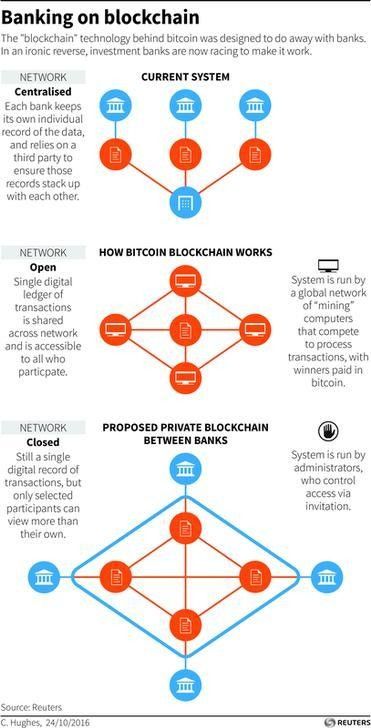
Blockchain is well-known as a method of exchanging assets, but in future it could also be used for - among other things - welfare distribution, secure voting, land-title transfers, even vaccine distribution. Jamie Smith, Chief Communications and Marketing Officer of The BitFury Group, and co-chair of the Global Future Council on Blockchain, explains how blockchain could bring about a revolution in banking, supply chain management and entrepreneurship.
What is blockchain and how is it affecting our lives already?
Blockchain is, essentially, the most secure way we can make exchanges today, allowing you and I to send an asset without using a trusted emissary, creating a global common exchange digital marketplace.
If we imagine exchanging assets as a train: the blockchain is like a train track, the bitcoin is a train car. You can put in the train car whatever you want. I can send you a dollar, or a health record, a piece of music, a movie. The possibilities are limitless.
Blockchain technology has the potential to make the world a more efficient, frictionless place. The amount of people around the world living in either broken systems or entirely corrupt systems is staggering. If done right, blockchain could positively reform entire systems.
How would blockchain do that?
The Bitcoin blockchain – otherwise known as the public blockchain – works on a very simple principle. Every 10 minutes, any transaction that has happened around the world is put into a block. All of the computers around the world then fight to verify those transactions within that block, ensuring that they happened, they were secure, that all the math lines up. So all these computers are competing to solve this giant math problem. Whoever solves it actually wins 12.5 Bitcoins. So, for the first time ever, we have a system where there is a financial incentive to ensure security. Simply put – security is the lifeblood of the Bitcoin blockchain.
The financial incentive embedded in the Bitcoin blockchain feeds people's desire to keep it secure. Security isn't a part of the system, it is the system.
When the internet was invented, security wasn't the first thing they thought of. So all databases today are centralized. Which means if you break into one of them, you have access to all of them. But with blockchain, we have a decentralised system. So if you want to break into one house you would need to break into all of the houses in the entire Bitcoin blockchain at exactly the same time.
https://www.weforum.org/agenda/2016...al&utm_source=twitter.com&utm_campaign=buffer
